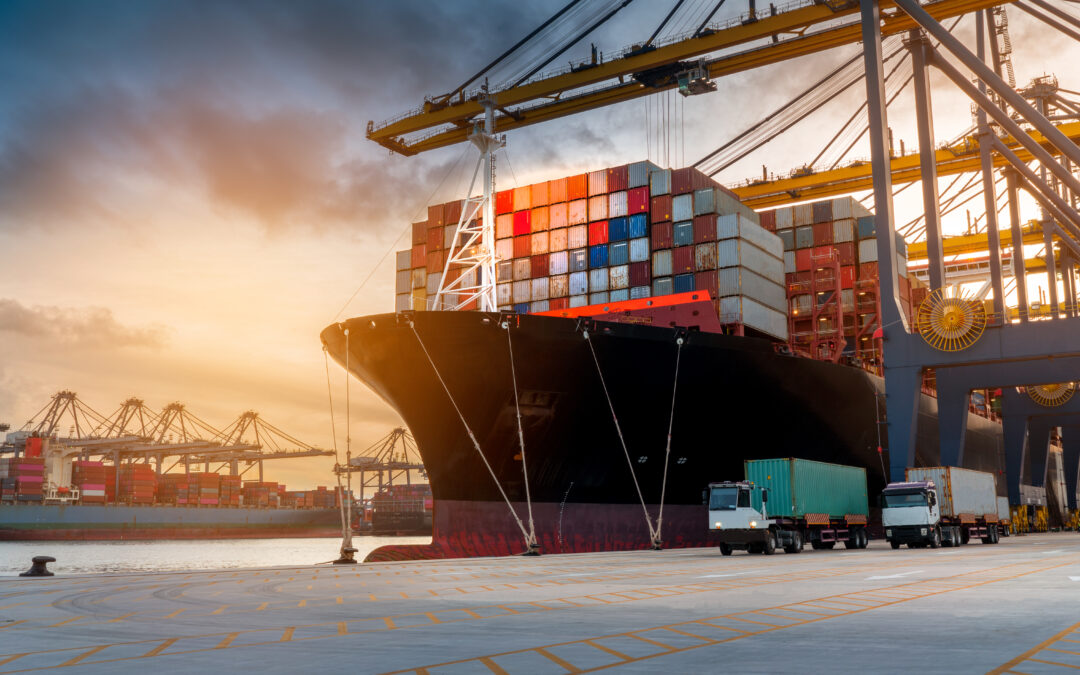As we set sail into the new year, the maritime industry finds itself amidst a sea of change, propelled by a myriad of factors ranging from technological innovations to geopolitical shifts. In this comprehensive analysis, we delve deep into the top shipping trends that are poised to shape the industry landscape in 2024 and beyond, drawing insights from industry experts and research reports.
1. Digital Transformation: The maritime sector is undergoing a profound digital transformation, driven by the convergence of cutting-edge technologies and a growing demand for efficiency and transparency in supply chain management. From blockchain-powered logistics platforms to AI-driven predictive analytics, digitalization is revolutionizing every aspect of the shipping process, offering unprecedented levels of visibility, traceability, and operational efficiency.
According to a report by McKinsey & Company, the adoption of digital technologies in the shipping industry could unlock $1.5 trillion in value by 2026, with significant gains expected in areas such as predictive maintenance, route optimization, and crew management.
2. Sustainability Imperative: In an era marked by growing environmental awareness and regulatory pressure, sustainability has emerged as a non-negotiable imperative for the shipping industry. Companies are increasingly embracing eco-friendly practices, investing in cleaner propulsion technologies, and exploring alternative fuels such as LNG and hydrogen to reduce greenhouse gas emissions and mitigate their environmental footprint.
The International Maritime Organization (IMO) has set ambitious targets for the reduction of carbon emissions from shipping, aiming to cut emissions by at least 50% by 2050 compared to 2008 levels.
3. Resilience in the Face of Disruption: The COVID-19 pandemic laid bare the vulnerabilities of global supply chains, underscoring the need for greater resilience and agility in maritime logistics. Companies are reevaluating their supply chain strategies, diversifying sourcing locations, and investing in digital tools and predictive analytics to anticipate and mitigate potential disruptions, from port closures to labor shortages.
A survey conducted by Deloitte revealed that 76% of shipping executives consider supply chain resilience to be a top strategic priority in the aftermath of the pandemic, with investments in digitalization and risk management expected to accelerate in the coming years.
4. Regulatory Landscape: The regulatory landscape governing the maritime industry is undergoing a period of significant evolution, with a slew of new regulations and standards aimed at addressing pressing challenges such as greenhouse gas emissions, ballast water management, and crew welfare. Companies must stay abreast of these regulatory developments and proactively adapt their operations to ensure compliance and minimize risks.
The European Union’s Green Deal initiative and the IMO’s Sulphur 2020 regulations are just a few examples of regulatory measures driving change in the maritime industry, signaling a broader shift towards sustainability and environmental stewardship.
As we chart our course into the future, it is clear that the maritime industry is at a critical juncture, poised for transformational change driven by digitalization, sustainability, and regulatory pressures. By embracing these trends and leveraging emerging opportunities, companies can navigate the ever-evolving seas of the industry and emerge stronger, more resilient, and better equipped to meet the challenges and opportunities that lie ahead.
At SPSS World Cargo, we are committed to staying at the forefront of industry developments and delivering innovative solutions to our clients. Whether you’re looking to optimize your supply chain, reduce your environmental footprint, or ensure compliance with the latest regulations, we’re here to help. Contact us today to learn more about how we can support your shipping needs and propel your business forward.
Sources:
- McKinsey & Company. “Digital transformation in maritime.”
- International Maritime Organization (IMO). “IMO Strategy on Reduction of GHG Emissions from Ships.”
- Deloitte. “The resilient maritime supply chain: Navigating the COVID-19 pandemic and beyond.”
- European Commission. “European Green Deal.”
- International Maritime Organization (IMO). “IMO 2020 – Sulphur Limit Compliance.”



